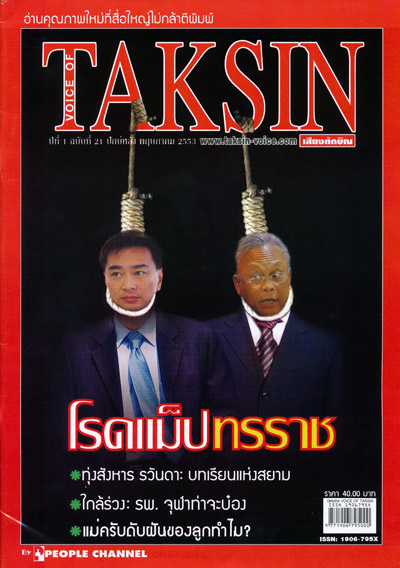Last time I wrote about rectification of names, the importance of using correct terminology and not fooling ourselves with self-proclaimed labels. However important that concept is, on its own it doesn’t move the discussion along – who has never heard of reds being called a misguided and manipulated mob? What good has ever came out of it?
Today I want to present some reasons why it is so, why, despite all the efforts on all sides to communicate with each other, nothing substantial has been ever achieved.
Let’s consider one of the most cliche expressions out there – “paradigm shift”. Ever since MBA and marketing people adopted it, it has turned into one of those meaningless proclamations no one pays attention to. Forget those guys, go back to the original, intended meaning.
About fifty years ago Thomas Kuhn wrote a book, “The Structure of Scientific Revolutions”, and he used “paradigm shift” to describe development of science. We all know that scientific theories evolve, that they eventually replace each other, but Kuhn presented some very interesting observations of how it actually happens.
For one thing, paradigm shifts have very little to do with accumulating scientific data and knowledge per se, or with validity of new theories, there’s a lot of human element involved, too, and paradigms describe not just prevailing theories but entire world views that come with them.
When one theory achieves dominance and a paradigm evolves around it, it gives scientists the direction to develop it further, it gives them new problems to solve, it gives them new knowledge to solve these new problems, provides them with tools to solve them, it gives them determination and tenacity and recognition, but, on the other hand, it also restricts the development to certain areas only. It identifies new goals, but also sets limits to what goals can be pursued, it sets boundaries, it sets areas where scientists simply cannot go or even contemplate. It sets rules how to deal with those areas – either dismiss them altogether, discount as simple errors, or postpone for the future consideration. That’s the period of “normal” science.
Eventually some unresolvable problems accumulate and become too obvious and annoying enough to push some “revolutionary” scientists to look for other, unorthodox tools, methodology and theories to try and explain them. They might try something totally new, they might pick up some ideas discarded earlier and turn them around, try whatever works.
Finally, they come up with a completely new theory that explains previously unresolved phenomena, and also explains how previous theory achieved its results without contradicting this new theory. They prove that their new theory is overall better, and so the new paradigm is born. Then they flesh it out with new methods, new tools, new rules, new areas of research, and new areas you are not supposed to even think about.
And then it starts all over again.
The transition from one paradigm to another is not a peaceful time, however, and it doesn’t happen overnight.
Take Copernicus, for example. He came up with the idea that Earth rotates around Sun but his calculations were not correct enough to challenge the prevailing Ptolemaic system which still predicted planetary positions better, and no one had taken Copernicus seriously. Then Galileo came up with his telescopes and Jupiter moons, and paid dearly for that, then Kepler, who introduced ecliptic orbits, a whole bunch of other guys helped, too, in the end it was only Newton’s work, some hundred and fifty years later, that enabled Copernicus theory to finally become dominant.
Here we have a combination of religious dogma and a lack of precision in the theory itself that delayed the adoption.
Then there’s example of Darwin who killed the idea of the Creator altogether. Chemists didn’t accept the idea of atoms right away, either, Einstein’s relativity took quite some time to kill off electro-magnetism, Big Bang theory took decades to prove itself and so on.
The interesting observation that Kuhn made was that, as a general rule, proponents of one paradigm do not convert to a new one, they just die out, of natural causes. They are so heavily invested in their own paradigm, as human beings, that conversion becomes practically impossible – remember that paradigm defines them completely. It defines their core beliefs, their values, their methods, ways of thinking, approaches to problems, and the problems themselves, and generally, they have enough material to go on until the end of their natural lives.
New scientists adopt new paradigms, old dogs don’t do new tricks.
It’s not that there’s no communication between adherents of the new and old paradigms, but, Kuhn observed – they just can’t agree on anything. One of the reasons is that their language becomes different. The arguments that old school insists on are irrelevant to the new way, and the arguments that new school uses to prove itself makes no sense to the old guys, as they simply do not share the new methods to prove things and do not even have the vocabulary for that – they were not provided by the old paradigm they grew up with.
Two existing theories become incommensurable – that is you can’t use one paradigm to prove or disprove another, each is good only on its own terms. Each one is practically self-contained, without any overlapping areas, they simply talk past each other.
That was all ages ago, we all naturally assume that now the society and science are far more mature to fall into those old pitfalls. So, let’s take look at some currently ongoing case study and see how it works in the modern age, and there’s nothing better for that than good old fashioned Darwinism.
Darwin traveled the world, observed great many animals, checked their hooves and claws and wings, looked at the colors of various butterflies, checked behind the ears, and came up with the idea of evolution through natural selection. That was greatly offensive to many at that time – descending from monkeys? No, thank you – natural human response, but one of the most important points it scored was that it ruled out God the Creator. God had already been banished from the universe, now Darwin killed off his last remaining role as the one who could have created it. That was the final victory and the strongest point for the new, Darwinian paradigm.
It has defined development of biology ever since, the way all new data and new fossil finds are interpreted.
All well, but look what happened a hundred years later, with advent of genetics, biochemistry and molecular biology. Darwin had no idea those little things even existed, he never observed them, yet biologists within Darwin’s paradigm already knew that these completely new areas of science must comply with “evolution through natural selection”. It was not “observe and form a theory” process, it was “make sure your observations fit”.
In the beginning no one made a lot of fuss anyway – people were just too busy trying to find out what those genes and proteins are and how they work. Even today the question of how exactly they could have been developed is simply beyond the scope of current research.
Any disagreement immediately marked one as being a hidden creationist. That is the strongest point of Darwinism, rejection of God, and it’s fully at work. The world is exactly black and white – if you doubt Darwin, you support religion. It’s hard to find a third position, and the fact that many creationists deliberately obscure their position by claiming to be something else, like “intelligent designers”, is not helping. Dissenters are immediately get lumped with those loonies somewhere in Kansas who try to sneak Bible back into schools and go to courts over it.
Nevertheless, just as any paradigm before and after it, evolution through natural selection has collected plenty of problems that it can’t explain adequately. Gaps and missing links between species, lack of fossil evidence, mismatching timings and the like, but I want to give an example from molecular biology that Darwin was completely unaware of.

What you see is a diagram of a flagellum, a sort of a tail sticking out of some bacteria. The bacterium has a motor inside that rotates this “tail” and so it acts as a propelling mechanism. It can change the direction of rotation so that the bacterium can move forward and backwards and so on.
This is one of the most common examples of the so called “Irreducible Complexity”, which means that you can’t make this motor, consisting of some forty parts, in gradual, working steps. You have to get all the components, in exact shape and size, together at once and assemble them in only one particular fashion, otherwise it wouldn’t work.
That flies in the face of natural selection that postulates that evolutionary steps must be gradual and each one must improve the system or it would simply die out.
In bacteria terms it means that adding each component one by one and going through various possible shapes and sizes must improve the system overall at each step otherwise it would be a waste of time, resources and energy and the wasteful specimens would die out in competition instead of evolving.
If an engineer were to design such a motor he would spend a considerable amount of time and go through a considerable amount of failures to eventually produce a working motor that would recoup the investments in the end, but natural selection does not allow for investments and sacrifices. If you add one screw somewhere and the machine doesn’t immediately become better – you’ve wasted a screw, DIE!
It is theoretically possible to describe how to build a motor like this in gradual steps – means you can’t prove that it is impossible, but so far, some fifteen years after it was first publicized, no one still has a slightest idea how to go about that, and there’s absolutely no evidence of any half built motors in bacteria either.
There’s a kind of sting that looks roughly the same and is used to inject poison into other organisms but still no sign of motor, still some thirty parts missing, and some have argued that the need to inject poison, evolutionary speaking, came a lot later than the need to propel yourself in water, and was clearly added later in bacteria that have both functions.
There’s absolutely no chance it could have come out by chance either. There are calculations that give out numbers in range of ten to the hundred power, which, translated into years, (bacteria has a life span of about half an hour) gives us untold trillions and gazillions, and our whole universe is only 14 billion years old. And that is just a small part of one of the simplest life forms, and the stuff it does on molecular level, for example the “machines” used for handling and replicating DNAs folded hundreds of thousands of times in order to fit inside the cell, makes it far more complex that anything our technological progress has ever achieved.
No one would look at models and diagrams of those things and claim to show how they came out through natural selection of trial and error, with each step being better than the previous. It just not the most obvious observation to make, to be generous to the idea, but, being prisoners of Darwinian paradigm, all scientists are obliged to dance around the issue, and those who dare to speak are drawn into taking sides and throwing mean punches at each other, which was probably not their intention in the beginning, but we are all humans…
Consider this opening paragraph of one paradigm prisoner refuting flagella argument.
Almost from the moment The Origin of Species was published in 1859, the opponents of evolution have fought a long, losing battle against their Darwinian foes. Today, like a prizefighter in the late rounds losing badly on points, they’ve placed their hopes in one big punch – a single claim that might smash through the overwhelming weight of scientific evidence to bring Darwin to the canvas once and for all.
You can immediately see that’s it’s not going to be about science, the war is about God and religion first and foremost, the truth will be sacrificed, if necessary, for the other side cannot be allowed to win.
You can also see that this guy is never going to give up on his paradigm, no matter what hard and irrefutable evidence you put before him.
So that’s an example of how far the scientific community progressed since modern ages. We don’t burn people at stakes, but sure as hell we won’t provide funding to those religious fanatics hiding under various innocent looking labels who want to destroy our faith in Darwinism.
Faith, make no mistake, as we are asked to believe that despite all the shortcomings in evidence and proof department, eventually all will become clear and properly explained. The world is too complex for us to see right now, but, in the end, Darwin, who had a “revelation” of sorts, will prevail, you just have to believe, work very hard, and don’t get distracted.
Every new paradigm starts with a faith, btw. In the beginning no one can possibly see that the new theory would produce enough positive results to justify itself, they work on faith, and the old school science persevere on faith, too, even when evidence against it keeps multiplying.
The ever present human element.
Isn’t it ironic how God has again become the dividing issue in science. I’m sure Copernicus or Galileo or Bruno were NOT against existence of God per se, but once their theory even suggested that God doesn’t exist in a way the prevailing paradigm had prescribed, all their ideas were summarily rejected.
Nowadays even a remote hint at the existence of God, even by non-religious people, gets a complete and total ban from mainstream science. If someone pleads “I’m for Intelligent Design, not religion” it won’t matter – the damning label has been stuck already, all forms of dissent against Darwinism is pro-God by definition. By definition of Darwinian paradigm, that is.
I’m not speaking in absolute terms, mind you, new paradigms do find ways to prove themselves, they managed even in sixteenth century, so nothing is lost forever, there’s a way forward, though it might not be pleasant for all.
Well, that should round it up nicely for today. Applying this paradigm model to current Thai politics definitely needs another sitting.
Filed under: Fundamentals, News | Tagged: paradigm, philosophy, science | Leave a comment »









